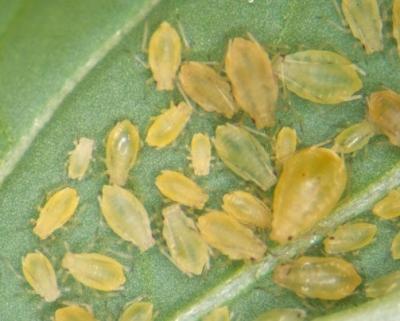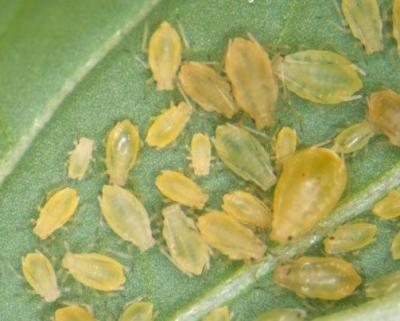

Main aphids in Africa: Black bean aphid ([i]Aphis fabae[/i]), Cabbage aphid ([i]Brevycoryne brassicae/Myzus persicae[/i]), Groundnut aphid ([i]A.craccivora[/i]), Cotton aphid ([i]A.gossypii[/i]), Russian wheat aphid ([i]Diuraphis noxia[/i]), Cypress aphid ([i]Cinara cupressi[/i])
Aphids (Aphis gossypii, Myzus persicae)
Aphids such as cotton aphid (Aphis gossypii) and the green peach aphid (Myzus persicae) suck plant sap, which can reduce plant growth; they also secrete honeydew, on which sooty moulds growth. Sooty mould on fruits reduces their market value. These aphids may also transmit virus diseases during feeding such as the cucumber mosaic virus. In Kenya, aphids are occasionally found on tomatoes, but they are not considered an important pest.
- Conserve natural enemies. Aphids are usually kept under control by a wide range of natural enemies. For more information on Natural enemies click here
- In particular, avoid use of wide spectrum pesticides since they kill natural enemies.
- Use reflective mulch. Reflective aluminium mulches deter aphids from landing on plants. The effect is lost once plants are large enough to cover the mulch.
- Use biopesticides that are not harmful to natural enemies (e.g. neem, ashes, soapy water). For more information on Biopesticides click here
